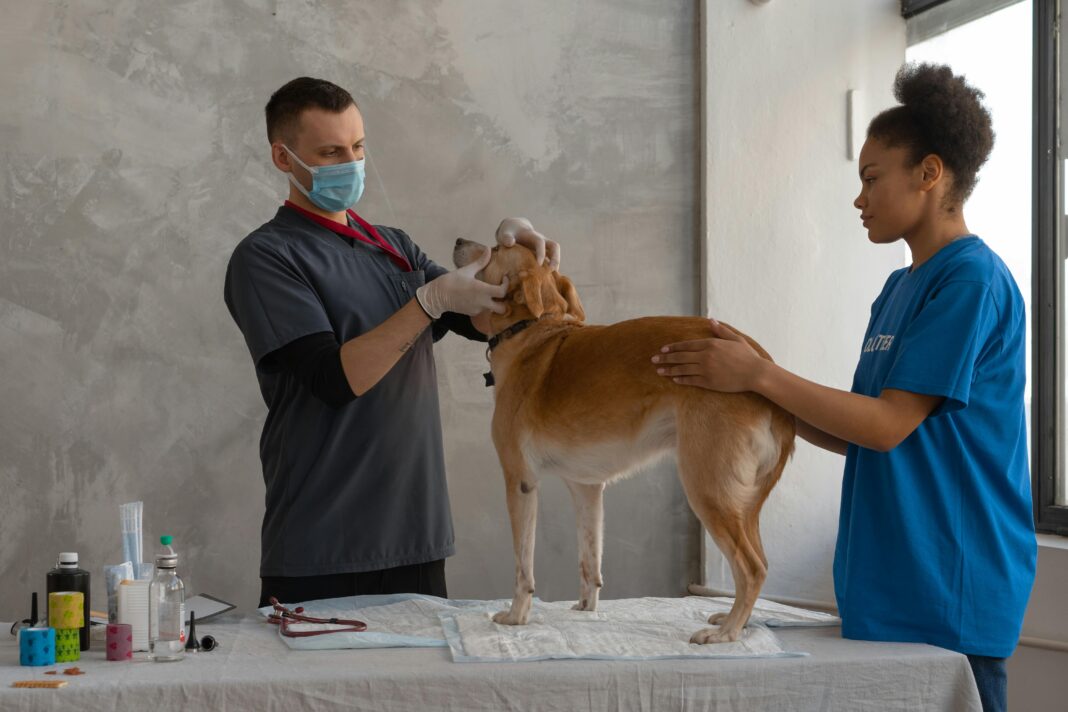As a devoted pet owner, you want the best for your furry friend. One of the most crucial steps in ensuring their well-being is scheduling an annual vet checkup. This proactive measure not only helps detect potential health issues early but also reinforces the bond between you and your pet. In this article, we’ll explore the myriad reasons why annual vet visits are essential and delve into practical tips to enhance your pet’s health care routine.
Understanding the Importance of Annual Vet Checkups
Health Monitoring and Prevention
Annual checkups serve as a foundational aspect of preventive health care. Just like humans, pets can develop health issues that may not be immediately visible. Regular visits allow your vet to monitor your pet’s physical condition and identify subtle changes that could indicate underlying problems.
Vaccinations and Updates
Many vaccines require boosters at specific intervals to ensure your pet remains protected against diseases. During the annual checkup, your veterinarian will assess your pet’s vaccination schedule and administer any necessary shots. This proactive approach protects not only your pet but also ensures community health by reducing the spread of infectious diseases.
Common Health Issues Identified During Checkups
Dental Problems
Oral health is often overlooked but plays a significant role in your pet’s overall well-being. During checkups, veterinarians perform dental examinations to identify issues like plaque buildup, gum disease, or tooth decay. Early intervention in dental health can prevent more serious problems down the line, such as infections and pain.
Weight Management
Obesity is a significant concern among pets and can lead to various health complications, including diabetes and joint problems. Your vet will assess your pet’s weight during the checkup and provide guidance on proper nutrition and exercise. Maintaining a healthy weight is crucial in prolonging your pet’s life and improving their quality of life.
Skin and Coat Examination
A thorough examination of your pet’s skin and coat can help identify parasites such as fleas and ticks, skin allergies, or infections. Early detection of these issues allows for prompt treatment, ensuring your pet stays comfortable and healthy.
Identifying Symptoms That Require Immediate Attention
While annual checkups are essential, it’s equally vital to recognize symptoms that warrant immediate veterinary care. Here are some warning signs to keep an eye out for:
Sudden Changes in Behavior
If your pet suddenly becomes lethargic, withdrawn, or shows signs of aggression, it may indicate underlying health issues. Changes in behavior are often one of the first signs of discomfort or illness.
Unexplained Weight Loss or Gain
Noticeable weight fluctuations can be alarming. If your pet is losing weight without any dietary changes, it could be a sign of serious health issues, such as metabolic disorders or organ dysfunction.
Excessive Scratching or Licking
This behavior can lead to skin infections or allergic reactions. If your pet is excessively scratching or licking their paws, consult your vet to identify the root cause and develop an appropriate treatment plan.
Diagnostic Tools Used During Checkups
During an annual vet checkup, various diagnostic tools are employed to ensure a comprehensive assessment of your pet’s health:
Blood Tests
Blood tests can provide invaluable insights into your pet’s internal health, helping to detect conditions like diabetes, kidney disease, and infections. Regular blood work can establish a baseline for your pet’s health and identify changes over time.
Urinalysis
A urinalysis can reveal essential information about your pet’s hydration levels and kidney function, as well as detect urinary tract infections. This diagnostic tool is a quick and effective way to assess your pet’s well-being.
X-Rays and Ultrasounds
In certain cases, more advanced diagnostics like X-rays or ultrasounds may be recommended to investigate internal issues. These imaging techniques can unveil problems such as tumors or fractures that may not be externally visible.
Prevention: Best Practices for Pet Care Beyond Checkups
Nutrition and Diet
A balanced diet is crucial for maintaining your pet’s health. Consult your vet for diet recommendations that cater to your pet’s breed, age, and health condition. Avoid feeding your pet table scraps, as these can lead to obesity and nutritional imbalances.
Regular Exercise
Incorporate regular exercise into your pet’s routine. Daily walks, playtime, and mental stimulation through toys or training can dramatically improve your pet’s physical and mental health. Engaging activities help combat obesity and reduce anxiety, leading to a happier pet.
Oral Care at Home
In addition to professional dental checkups, establishing a home dental care routine is vital. Brush your pet’s teeth regularly and provide dental treats to help reduce plaque buildup. Good oral hygiene is key to preventing serious health issues related to dental disease.
Parasite Prevention
Protect your pet against fleas, ticks, and heartworms with appropriate preventive medications. Your veterinarian can recommend the most effective products based on your pet’s lifestyle and risks.
Building a Stronger Bond with Your Vet
Open Communication
Building a strong relationship with your veterinarian fosters an environment of trust and collaboration. Don’t hesitate to voice your concerns or ask questions during visits. Your vet is there to provide guidance tailored to your pet’s unique needs.
Relationship with Your Pet
Creating a routine around vet visits can help your pet feel more comfortable. Consider incorporating positive reinforcement, such as treats and praise, when traveling to and from the clinic to reduce anxiety.
By prioritizing annual veterinary checkups and embracing proactive pet health care practices, you are taking significant steps towards ensuring a long, healthy life for your beloved companion. Regular veterinary visits, combined with attentive care at home, form the cornerstone of a vibrant and thriving pet lifestyle.





